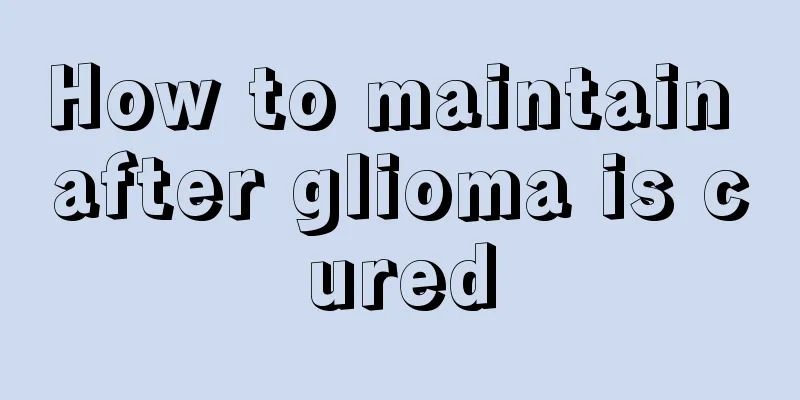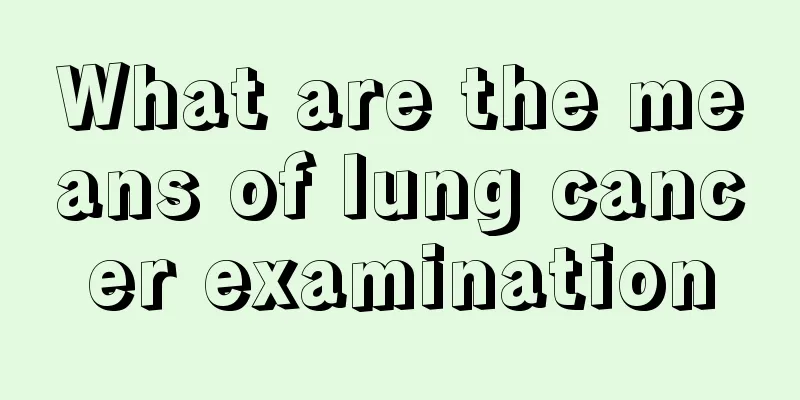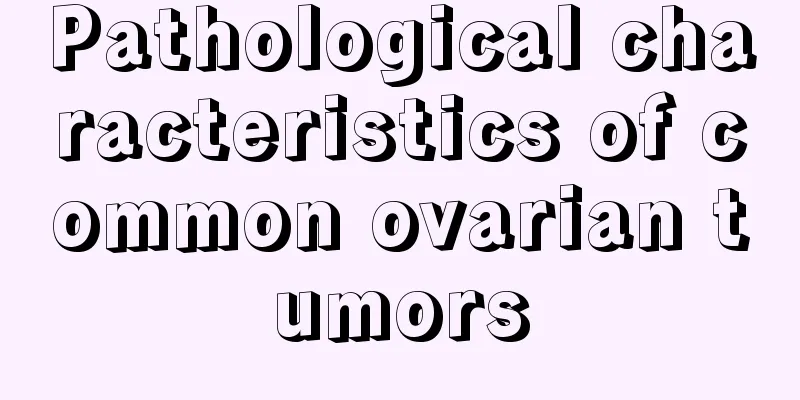How to maintain after glioma is cured

|
We all know the seriousness of tumors. Gliomas are indolent tumors. If we want to effectively control them, we need to make a lot of efforts. Therefore, after we get sick, we must formulate a reasonable treatment plan in time to cure it. Gliomas can only be cured clinically and cannot be completely cured. How to maintain the condition after gliomas are cured? Treatment principles: try to completely remove the tumor; if it is difficult to completely remove the tumor, do subtotal resection; if the tumor cannot be removed or the intracranial pressure is too high, decompression under the temporalis muscle, decompression craniectomy or shunt surgery can be performed. Postoperative radiotherapy. 1. Surgery: Gliomas are characterized by infiltrative growth with no obvious boundary with normal brain tissue. Most of them are not limited to one lobe of the brain and penetrate deep into the brain tissue like fingers. In theory, it is impossible to completely remove them by surgery. Some tumors growing in important parts such as the brainstem cannot be operated on at all. Therefore, the purpose of surgical treatment can only be limited to the following five aspects: (1) Clarify the pathological diagnosis. (2) Reduce the tumor volume and reduce the number of tumor cells. (3) Improve symptoms and relieve symptoms of high intracranial pressure. (4) Prolong life and create opportunities for other comprehensive treatments. (5) Obtain tumor cell dynamics data to provide a basis for finding effective treatments. 2. Radiotherapy: Suitable for patients with grade 2 glioma over 45 years old with clear residual tumor after surgery, or patients with grade 3 or 4 glioma. For patients with grade 2 glioma under 45 years old, even if the tumor is not completely removed, a wait-and-see attitude can still be adopted. 3. Chemotherapy: It is suitable for patients with recurrent secondary gliomas and postoperative treatment of patients with grade 3 and grade 4 gliomas. Chemotherapy is often used for highly malignant brain gliomas. For metastatic brain tumors, the sensitivity of treatment depends on the sensitivity of its primary lesions outside the central nervous system to chemotherapy. Chemotherapy regimens that are effective for primary lesions outside the central nervous system are also sensitive to brain metastases. There are two problems with chemotherapy drugs: the blood-brain barrier and the sensitivity of tumors to drugs. 4. Commonly used drugs: Diqing, cisplatin + nimustine hydrochloride Traditional Chinese medicine: Cidan Capsules, Xiaoaiping, Jinlong Capsules. Commonly used chemotherapy drugs: ACNU (nicotinamide ammonia mustard), BCNU (carbomustine), CCNU (cyclohexyl lomustine), MeCCNU (methyl CCNU), others include fluorouracil (5FU), cisplatin (DDP), carboplatin (CBP) and methyl procarbazine (PCZ). Combination chemotherapy: PCV (methyl procarbazine + CCNU + VCR), hydroxyurea + BCNU, BCNU + cisplatin. The effective rate is between 20%-40%. It is very difficult to completely cure brain glioma. Since the treatment of the brain is very difficult, brain glioma is a more serious disease, more difficult to treat, and it is easy to relapse, so everyone should treat it seriously to avoid recurrence. |
<<: What is the method to completely cure glioma
>>: How long does it take to eradicate glioma
Recommend
Is lemon and white wine a good way to remove freckles?
Loving beauty is women’s nature, especially havin...
What is the cause of eye pain
In fact, in life, it is common for human eyes to ...
What is the best way to reduce scars?
The presence of scars actually has a great impact...
Does molluscum contagiosum itch?
When molluscum contagiosum occurs, patients will ...
Four types of early esophageal cancer
The symptoms of early esophageal cancer patients ...
What are the methods for treating red blood streaks
Many people do not understand what red blood stre...
Dull pain in the lower left side of the chest
Chest pain mostly comes from the heart and lungs....
Is peach gum poisonous?
As people in modern society pay more and more att...
The dangers of CT scans are actually so great!
CT is a scientific and technological means of exa...
Hawthorn weight loss method, teach you how to use hawthorn to lose weight
Eating hawthorn can help you lose weight, but the...
Will gastrointestinal cold cause dizziness and chest tightness?
Time flies, and it's time for the season to c...
The difference between cold spray and hot spray
Cold spray and hot spray are two common outdoor s...
What to put in the swimming pool for disinfection
Swimming is considered a good sport by many peopl...
Nursing precautions for lung cancer patients with persistent cough
Due to the constant stimulation of the bronchi an...
What is the reason for teeth marks on the tongue
The so-called tooth marks on the tongue refer to ...









